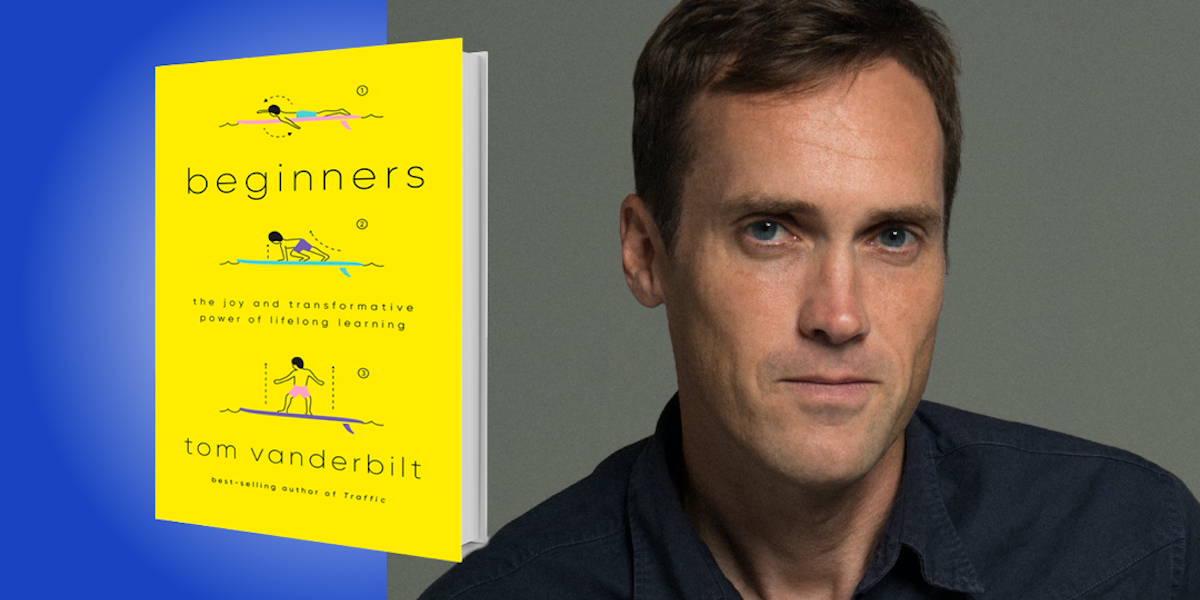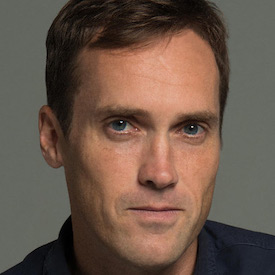Tom Vanderbilt is a contributing editor at Wired UK, Outside, and Artforum, where he writes about design, technology, science, and culture. He is the author of Traffic: Why We Drive the Way We Do (and What It Says About Us) and Survival City: Adventures Among the Ruins of Atomic America. He’s been a visiting scholar at New York University, lectured at the Yale School of Architecture, and is currently an amateur snowboarder, juggler, jewelry maker, and singer.
Below, Tom shares 5 key insights from his new book, Beginners: The Joy and Transformative Power of Lifelong Learning. Download the Next Big Idea App to enjoy more audio “Book Bites,” plus Ideas of the Day, ad-free podcast episodes, and more.
1. Harness the power of the beginner’s mind.
All too often we stubbornly avoid new things because we’re afraid we’ll be bad at them. But there’s great power in being a beginner. Unburdened by our past experiences and rote expertise, we can start to see the world—and ourselves—in new ways. We develop what’s often called the “beginner’s mind.” By taking on new challenges, we return to a child-like way of thinking, one that’s free from preconceptions, unburdened by expectation, less categorical in its outlook. We can push beyond our comfort zones. And best of all, we can have fun doing it—something we should never underestimate as an agent of learning and discovery.
2. Learn from true beginners.
Infants live what might be called the beginner’s creed: If you don’t learn to fail, you’ll fail to learn. Anyone who’s ever watched an infant learn to walk knows this to be true. Infants fall—a lot. About 17 times an hour, to be exact. Most adults, if confronted with that kind of failure rate, would give up. But not infants. Their persistence is one of the many traits that adult beginners should try to emulate. Another is the importance of changing things up. Infants never take the same walk twice, and you wouldn’t want them to—because when it comes to learning, variability speeds up the process. Infants also remind us that learning happens in fits and starts. They try to walk, go back to crawling, and then get up on their feet again. Their progress is “U-shaped”: they get worse before they get better. Adults are the same way. Finally, like infants who learn by operating at the limits of their budding skills, we should always be on the edge of the possible. It’s not easy—but if it feels easy, you’re not learning.
“Mess around, screw things up, push the boundaries—just to see what happens.”
3. If you know what you’re doing, you shouldn’t be doing it.
“In science,” wrote the mathematician Richard Hamming, “if you know what you are doing, you should not be doing it.” Great scientists don’t fuss over things that have already been proven. They experiment, fail, and experiment again! We should adopt this approach as we take up new pursuits. Mess around, screw things up, push the boundaries—just to see what happens. Get in over your head without worrying too much about the consequences. It’s the best way to grow.
4. Your brain is holding you back.
When stroke victims learn how to walk again, they’re often so focused on putting one foot in front of the other that their gaits become quite awkward. In other words, their brains get in the way of their bodies. That’s why overthinking is one of the biggest barriers to learning a new skill. The more forcefully we exert conscious control, the more likely our bodies are to betray us. The solution is to focus on an external target, one that takes our minds off what we think our bodies should be doing. That’s what Mahmoud Abdul-Rauf, one of the NBA’s most accurate free-throw shooters, does. He doesn’t think about his free-throw mechanics or what the potential points mean for his team. “I just relax and shoot,” he says. “And when I shoot, I look toward the back of the rim.”
“Our brains are still ready, willing, and able to learn at any age.”
5. You’re never too old. It’s never too late.
We all face the “stereotype threat” when it comes to being a beginner. It’s that little voice in your head that taunts you, saying, “It’s too late. You’re too old. Only dexterous children can learn the contrabassoon.” The bad news is that, in some ways, the voice is right. It does get harder—sometimes marginally, sometimes significantly—to learn new skills as we get older. The good news, though, is that our brains are still ready, willing, and able to learn at any age. Take juggling, for instance. Try learning it for just one week, and your brain will start to reshape itself by re-wiring its connections. You may never pick up new skills with the speed of a young person, but the more learning you do, the faster you’ll learn.
For more Book Bites, download the Next Big Idea App today:

































